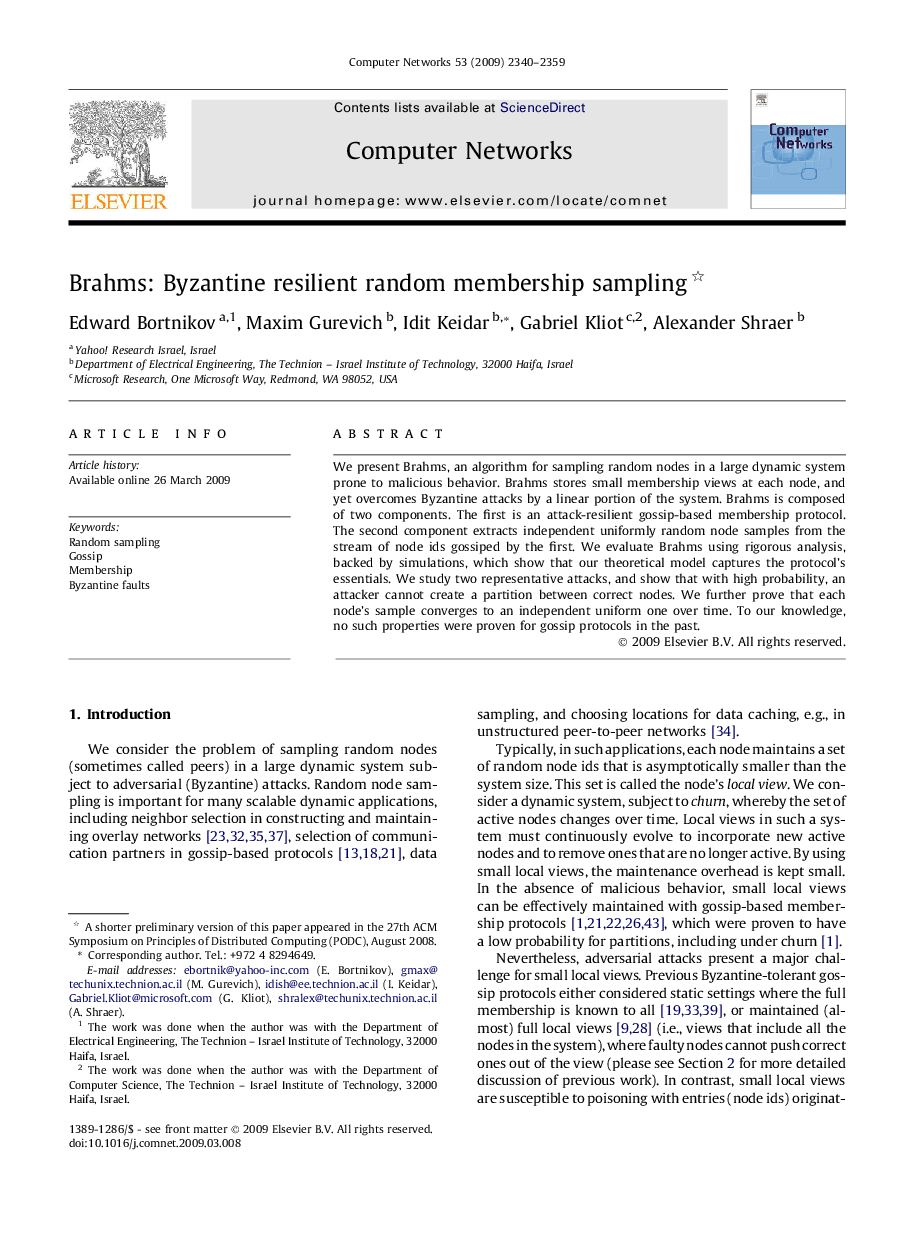| Article ID | Journal | Published Year | Pages | File Type |
|---|---|---|---|---|
| 452286 | Computer Networks | 2009 | 20 Pages |
We present Brahms, an algorithm for sampling random nodes in a large dynamic system prone to malicious behavior. Brahms stores small membership views at each node, and yet overcomes Byzantine attacks by a linear portion of the system. Brahms is composed of two components. The first is an attack-resilient gossip-based membership protocol. The second component extracts independent uniformly random node samples from the stream of node ids gossiped by the first. We evaluate Brahms using rigorous analysis, backed by simulations, which show that our theoretical model captures the protocol’s essentials. We study two representative attacks, and show that with high probability, an attacker cannot create a partition between correct nodes. We further prove that each node’s sample converges to an independent uniform one over time. To our knowledge, no such properties were proven for gossip protocols in the past.
